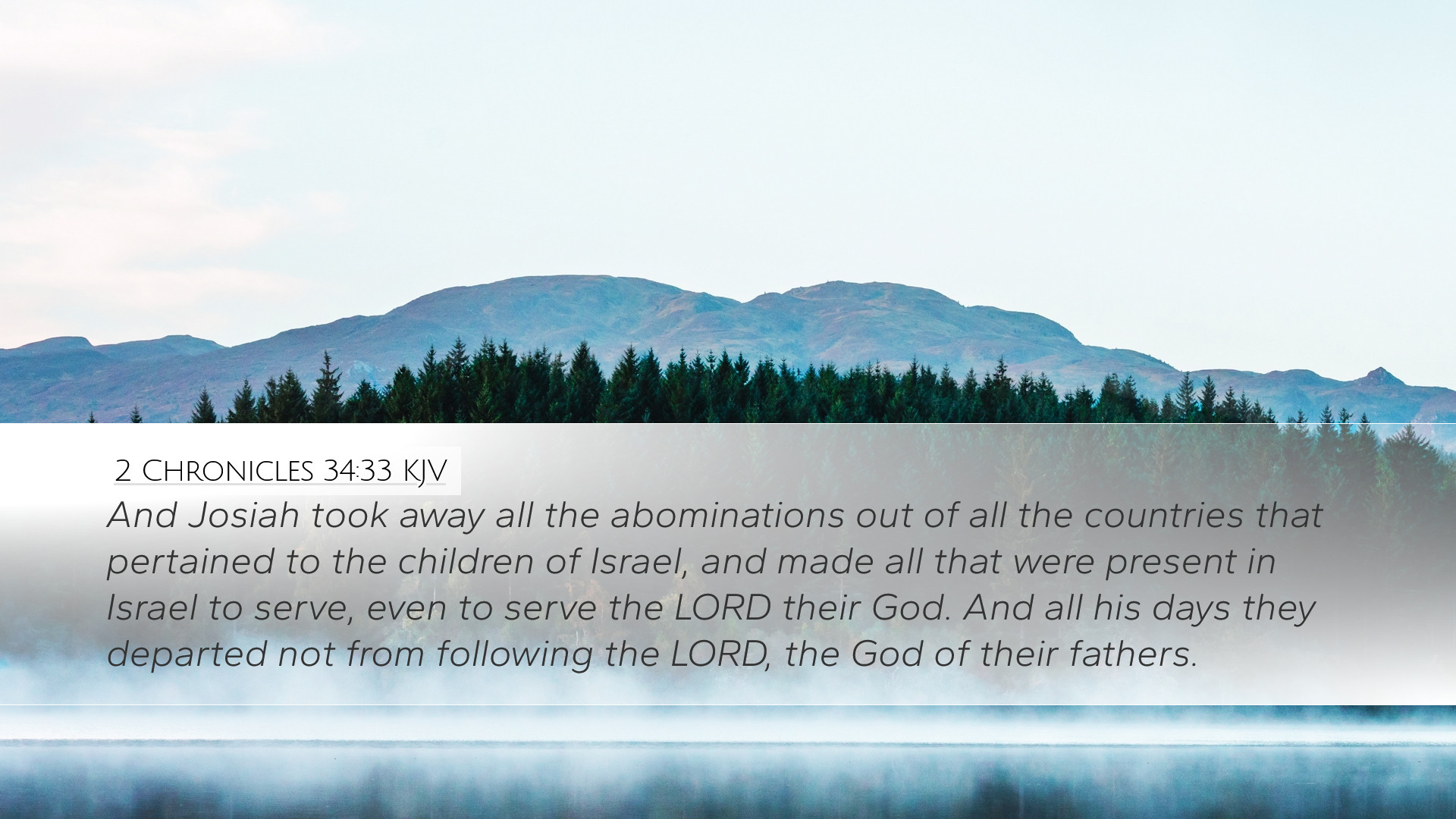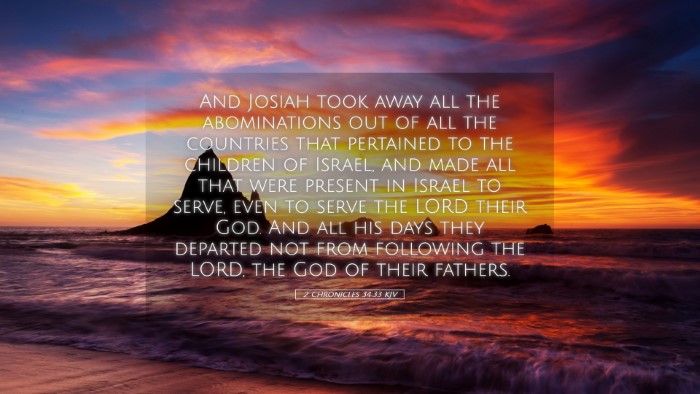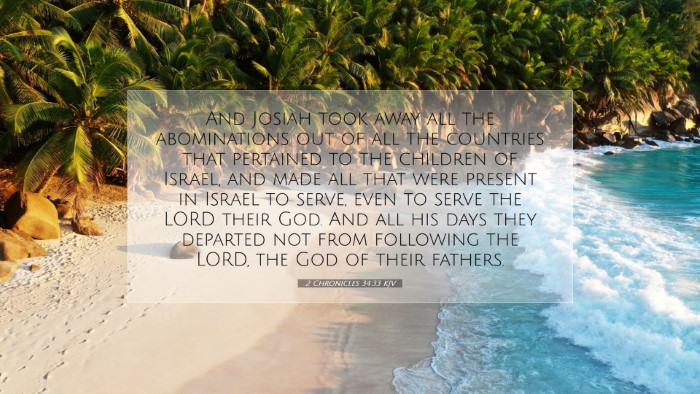Commentary on 2 Chronicles 34:33
Verse Text: "And Josiah took away all the abominations out of all the countries that pertained to the children of Israel, and made all that were present in Israel to serve, even to serve the LORD their God. And all his days they departed not from following the LORD, the God of their fathers."
Introduction
The reign of King Josiah is pivotal in the narrative of 2 Chronicles, particularly as it illustrates the profound effects of rediscovering the Law of God and the reformative actions that ensued. This verse encapsulates the dedication of Josiah to cleanse the nation of idolatry and lead the people back to genuine worship. A synthesis of insights from esteemed public domain commentators sheds light on the theological significance and implications of this passage.
Contextual Overview
Before diving into the interpretations, it is important to understand the historical backdrop of Josiah's reign, characterized by religious decay and rampant idolatry among the Israelites. Following the discovery of the Book of the Law in the temple, Josiah initiated sweeping reforms aimed at restoring true worship and eliminating the abominations that had infiltrated the land.
Historical Setting
Josiah ascended the throne at a young age and is noted for his righteousness in a time when the lineage of David was largely compromised by unfavorable kings. His reign is likened to a spiritual renaissance as he sought to align national practices with divine expectations.
Commentary Insights
Matthew Henry
Matthew Henry emphasizes the seriousness with which Josiah undertook the task of removing abominations. He notes that Josiah's reforms were not only national in scope but also personal, as they engaged the hearts of the people. Henry observes:
- “Josiah’s piety was manifested in action. He involved himself in the reformation, rallying the nation not just to outward compliance, but to heartfelt devotion to the LORD.”
- “The removal of idols signifies a return to covenant faithfulness, contrasting sharply with the previous generational complacency towards idolatry.”
Albert Barnes
Albert Barnes approaches the verse by asserting the importance of Josiah's leadership in leading the people away from idolatry:
- “True reform involves the dismantling of false systems of worship and establishing a culture of fidelity towards God’s commandments.”
- “The commandment to serve the LORD was not merely a call to worship but a comprehensive directive to prioritize allegiance and obedience above all else.”
Adam Clarke
Adam Clarke provides a theological and practical perspective on the significance of serving the LORD. His commentary highlights:
- “The phrase ‘serve the LORD’ encapsulates the full essence of covenant relationship—active, loyal, and loving service reflecting God’s attributes.”
- “Josiah’s reform is instrumental in illustrating the necessity of recommitting to spiritual practices that align with God’s will.”
Theological Implications
This verse invites deeper theological reflection on the nature of leadership and the collective response of God's people to divine guidance:
- The Role of Leadership: A leader's example is critical in shaping the spiritual environment. Josiah exemplifies how righteous leadership can steer a nation back to God.
- The Necessity of Purification: The toxic influence of surrounding cultures necessitates decisive action in eradicating sin and falsehood from worship practices.
- The Concept of Serving God: This idea extends beyond ritual observance and calls for a holistic commitment of one’s life, involving the heart, soul, and mind.
Application for Today
As we reflect on the actions of Josiah and the implications of 2 Chronicles 34:33, several applications for contemporary faith communities arise:
- Engagement in Reform: Just as Josiah identified areas needing purification, modern believers are called to identify and confront cultural and corporate idolatry.
- Community Worship: The collective experience of worship should reflect allegiance to God, making it crucial for communities to foster environments that prioritize God’s word.
- Personal Devotion: Individual believers are invited to engage in personal spiritual assessment and renewal, eschewing complacency in favor of active devotion.
Conclusion
2 Chronicles 34:33 serves as a testament to the power of rediscovering and returning to covenant faithfulness under a godly leader. The insights gathered from the commentaries of Matthew Henry, Albert Barnes, and Adam Clarke remind us of our responsibility to pursue a life of purity, commitment, and service to the LORD. As pastors, scholars, and students of the Word reflect on this passage, may it inspire a renewed commitment towards authentic worship and community transformation in our own contexts.


